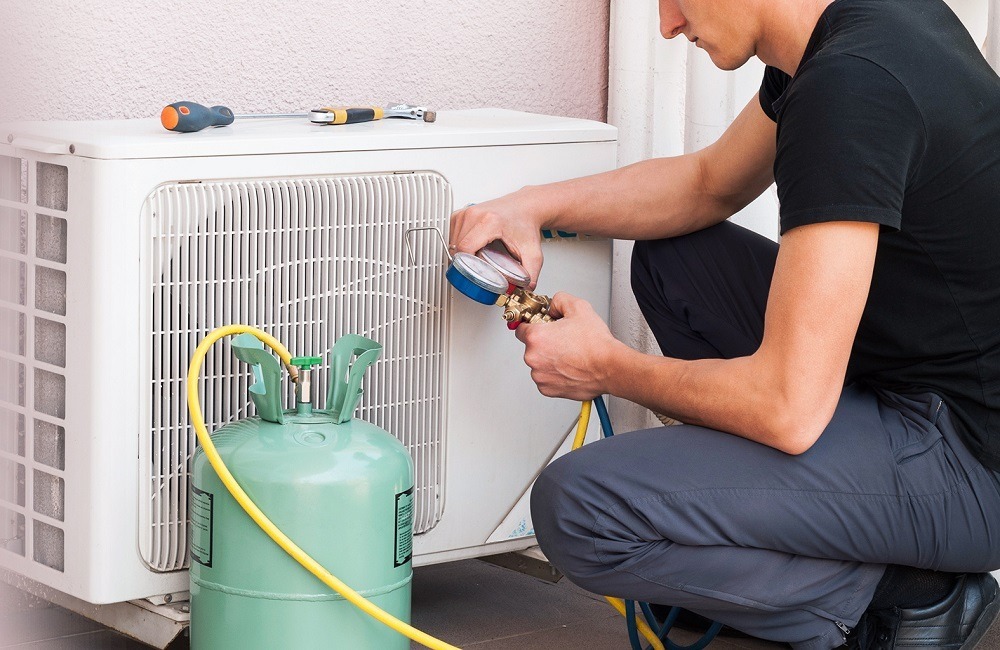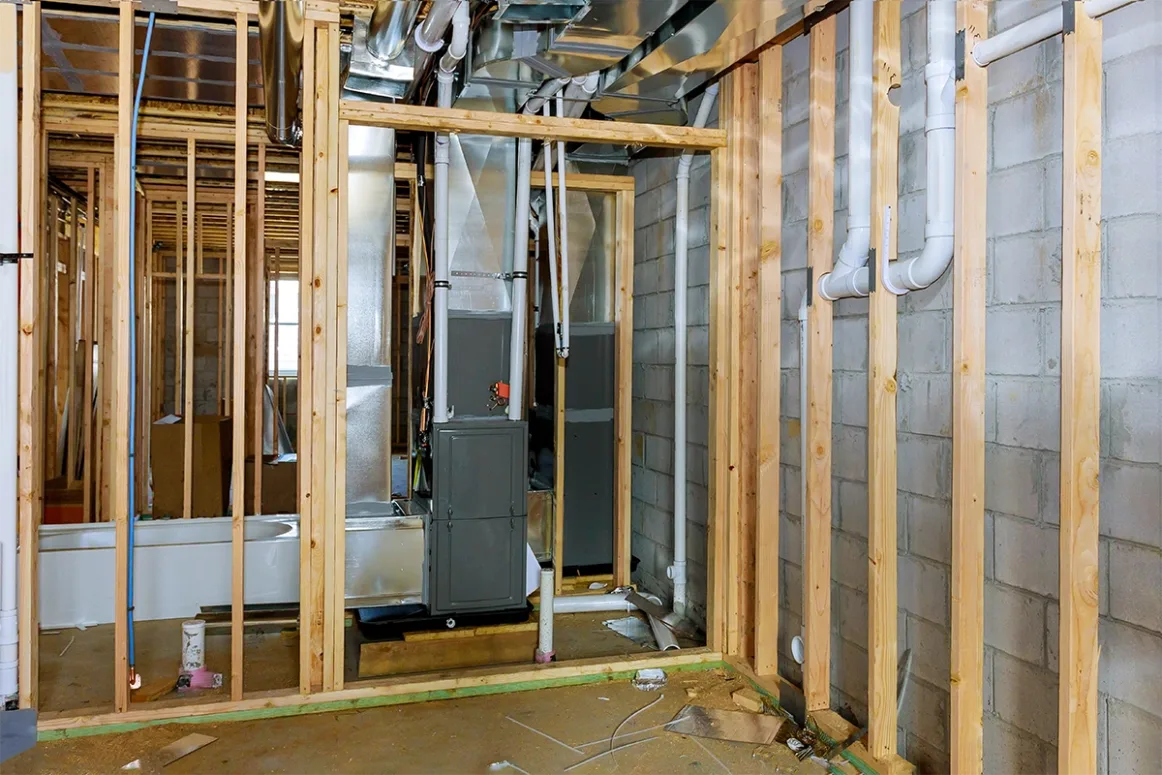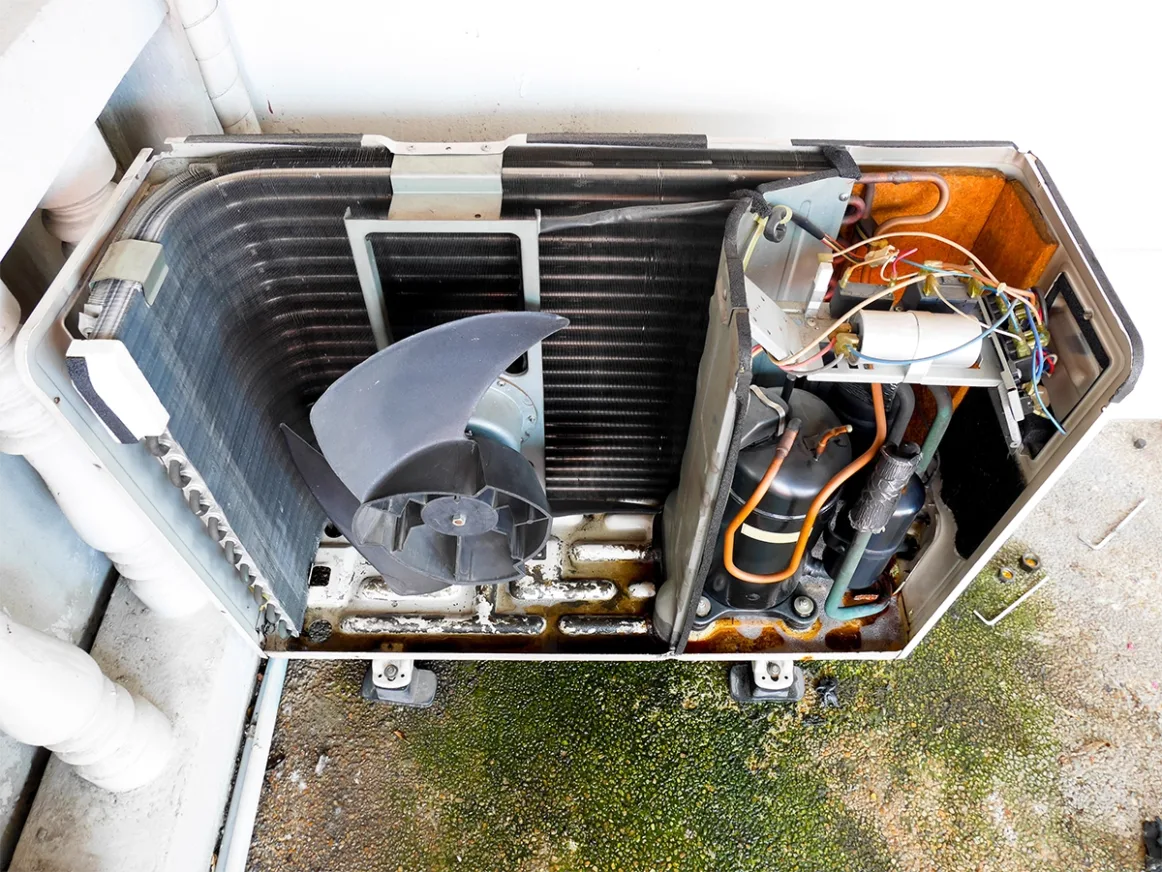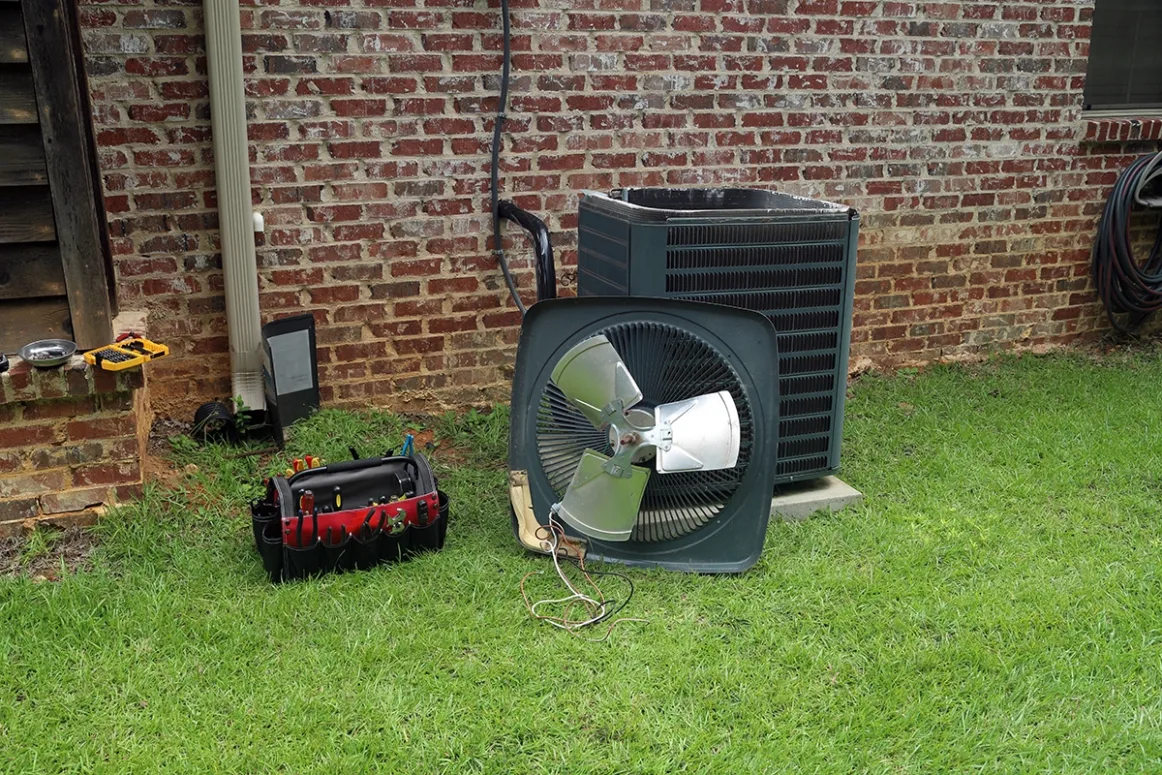
Know Your AC’s Refrigerant And When Do You Need Air Conditioning Repair.
We all know what our air conditioner does; it cools the air inside our homes, making living during the hot summer months tolerable. But when it comes to how it does that, most people are in the dark. Let’s discuss one key element of air conditioning: refrigerant. What is refrigerant? And how well do we know this important component of our air conditioners? Do we need air conditioning repair if our refrigerant is now banned?
Don’t wait for your AC to quit working before calling for air conditioning repair. Contact Russell Heating & Air today for your AC check-up!
The process of refrigeration
Before we can understand what exactly a refrigerant is and what it does, we need to be clear about the process of refrigeration itself. An air conditioning unit does not produce cool air the same way a gas heater produces heat—no fuel is burned to create a lower temperature. Instead, refrigeration works by absorbing and transferring heat out of a space, whether it’s a room or a refrigerator. To make this process possible, the system relies on a refrigerant, and when issues arise, professional air conditioning repair may be needed to restore proper performance.
Refrigerant is a chemical that absorbs the heat from an area, draws it inside the air conditioner and then releases it into the outdoors. The refrigerant follows a change of state cycle. In this cycle, the refrigerant goes from liquid to gas and then from gas back to liquid. If your unit is not doing this properly, it will fail to keep your home cool and you are in need of immediate air conditioning repair.
Types of refrigerants
There are four classifications in terms of refrigerants used in air conditioners.
- Chlorofluorocarbons (CFCs)
- Hydrochlorofluorocarbons (HCFCs)
- Hydrofluorocarbons (HFCs)
- Hydrocarbons (HCs)
In the past, one of the most widely used and commonly known refrigerants was CFCs (chlorofluorocarbons). You might have also known it by the brand name Freon, or \”R-12\”. Later, HCFCs (hydrochlorofluorocarbon) or \”R-22\” was introduced. HCFCs are not much better than CFCs due to their chlorine content, which is also harmful to the environment. To reduce environmental damage, HFC (or hydrofluorocarbon) refrigerant was developed. A commonly used HFC refrigerant is R-410A, which is a far better choice than CFCs and HCFCs.
The introduction of HCs or hydrocarbons has further supported the protection of the environment. Propane and Iso-Butane (R-290 and R-600A) are halogen-free and do not deplete the ozone layer, therefore their potential to contribute to global warming is minimal. HCs also have high energy efficiency. Hydrocarbons are highly flammable, but modern refrigeration systems and air conditioning repair technicians are well equipped to utilize the refrigerants safely and accident-free. HCs, by far, are the most environmentally friendly refrigerants available today on the market.
Use and disposal of refrigerant: a job for air conditioning repair professionals
It is true that some refrigerants are better or safer for the environment than others. However, when it comes to the handling and disposal of these refrigerants, there are strict laws in place. In fact, most refrigerants are not for sale to the public and can only be purchased by licensed air conditioning repair technicians.
It is prohibited to vent refrigerants intentionally, regardless of the reason, even by air conditioning repair companies. The fittings used to purge, connect, or disconnect your air conditioning systems should be low-loss, resulting in minimal loss of refrigerant. Any leakage of refrigerant should be recaptured, recycled, or disposed of safely following strict protocols. Refrigerant leaks in your air conditioners should be repaired within 30 days. At such time that you need to replace your air conditioner and dispose of the old one, certain measures must be taken to discard it legally.
These regulations ensure safety in terms of handling the refrigerants and also environmental protection. Violation of these rules can result in significant fines. If you are experiencing any issues involving refrigerant in your AC unit, contact a licensed HVAC company immediately. They can safely and legally resolve the problem and get your home back to being cool and calm.
Phasing out outdated refrigerants
Since the 1990s, governments around the world have introduced measures to phase out the use of harmful refrigerants and encourage manufacturers to adapt products to using the newer, safer refrigerants. As of the 1st of January 2020, R22 has been phased out globally. According to the U.S. Environmental Protection Agency (EPA), the production and import of R-22 in the U.S. is officially banned. This is solely due to the harmful effects that HCFCs have on the ozone layer and its contribution to climate change.
It has taken decades to reach this point due to lack of industry desire to change and uninformed buyers. It is the goal of the global community to ban all remaining production of HCFCs by Jan 1 2030. The ban will also apply to imports. If your system still relies on these outdated refrigerants, you may need professional air conditioning repair or consider upgrading to a newer, environmentally friendly unit.
Is Your AC Running on Banned Refrigerant?
At the very least, you’ll want to contact an HVAC Pro like Russell Heating & Air to run a system check and ensure that your unit is still functioning safely.





